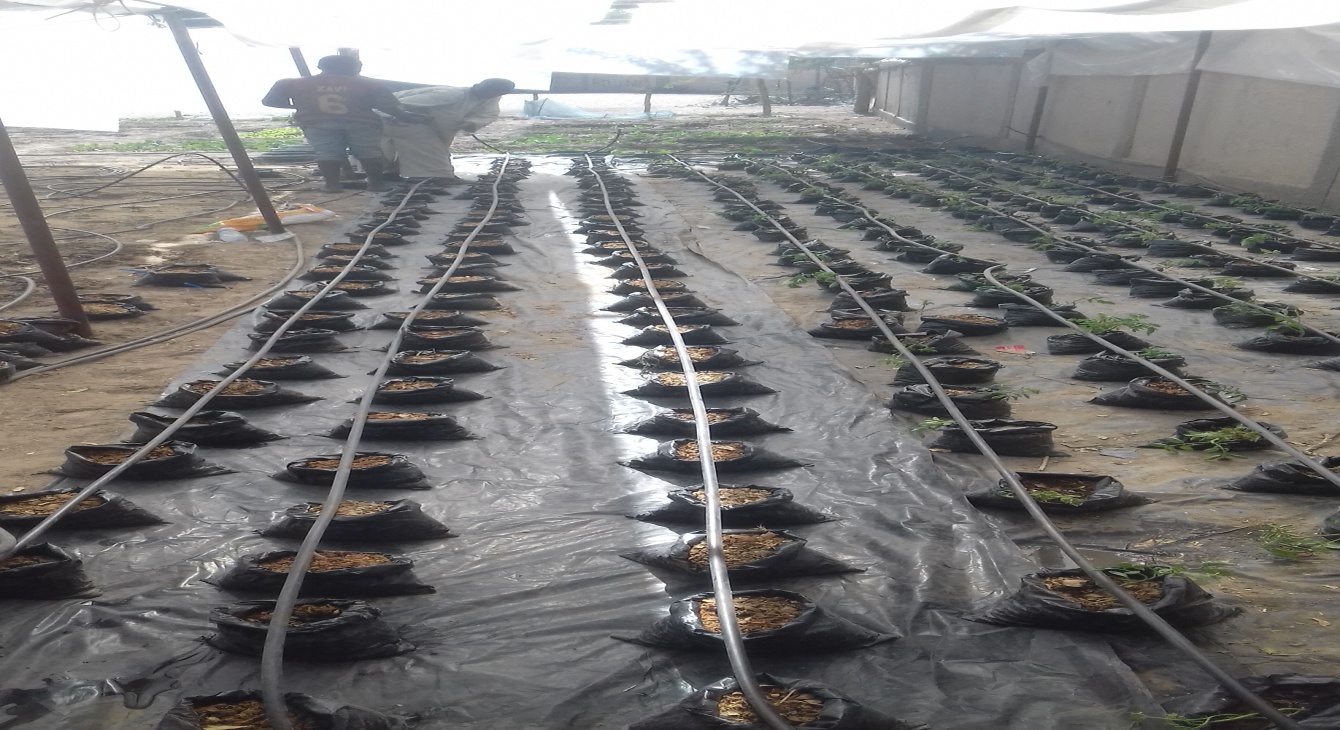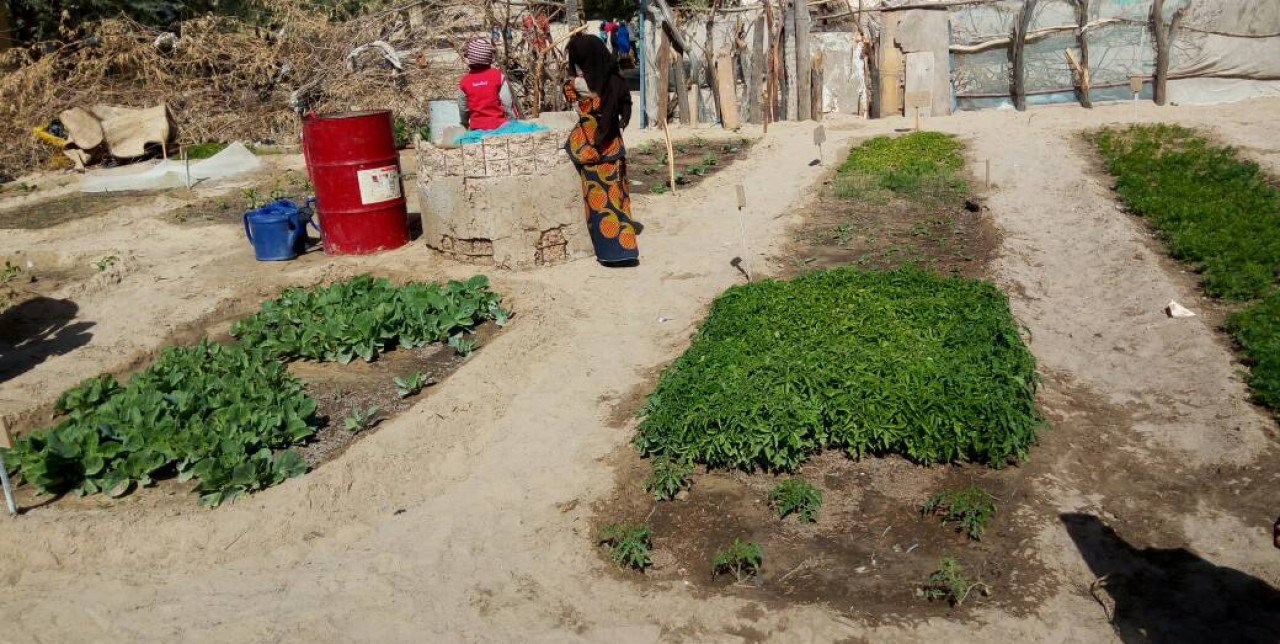05-04-2018 | di COOPI
Niger: parents cultivate vegetable gardens at school
Within the framework of the educational project financed by the Italian Agency for Cooperation and Development (AICS), COOPI selected ten primary schools, distributed in three departments of the Diffa Region (Mainé Soroa, N'guigmi and Diffa), for the instalment of school vegetable gardens.
COOPI’s agronomist Issoufou Haitou has been following this activity since September 2017. He explains how it is realised:
Gardening is an activity that mainly depends on the availability of water, on fencing, and on labour resources and materials. Therefore, in choosing the schools to be inserted in this AICS project, it was fundamental to select structures that had a good access to water.
To encourage the involvement of parents, CGDES (the Management Committee) was an actual gateway for realizing the gardens through a participative approach. The students’ parents participated actively and, in collaboration with the teachers, they proposed the vegetable cultivations of their choice on the basis of food preferences. Twelve type of vegetables were planted: tomatoes, cabbage, lettuce, onion, moringa, corn, mung beans, okra, pepper, eggplant, carrots and amaranth. Moreover, fertilizers, phytosanitary products and farming tools were put at disposal.
In order to strengthen their skills in the vegetable production techniques, training was provided within the schools benefitting from this activity to teachers and several members of the CGDES and AMEs (Mother Educators’ Association). During the two-day training, the calendar of the sowing seeds was presented, as well as the characteristics of the seeds of the species provided and the method to follow for a community management of a vegetable garden.
To this end, I personally collaborated with the DREP (Primary Education Regional Directorate) in drafting a training module, which was then put at disposal of the schools participating in the activity. We also decided to "challenge ourselves” by trying an innovate technique, that is the installation of “a raised garden bed”, which consists in producing vegetables in ground made of inert material, particle board, watered regularly. A protective structure, provided with a drip irrigation, was realized in iron and canvas.





 Niger
Niger